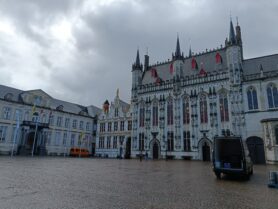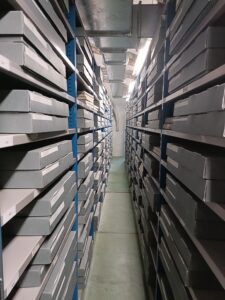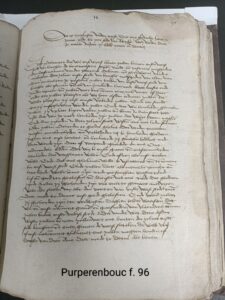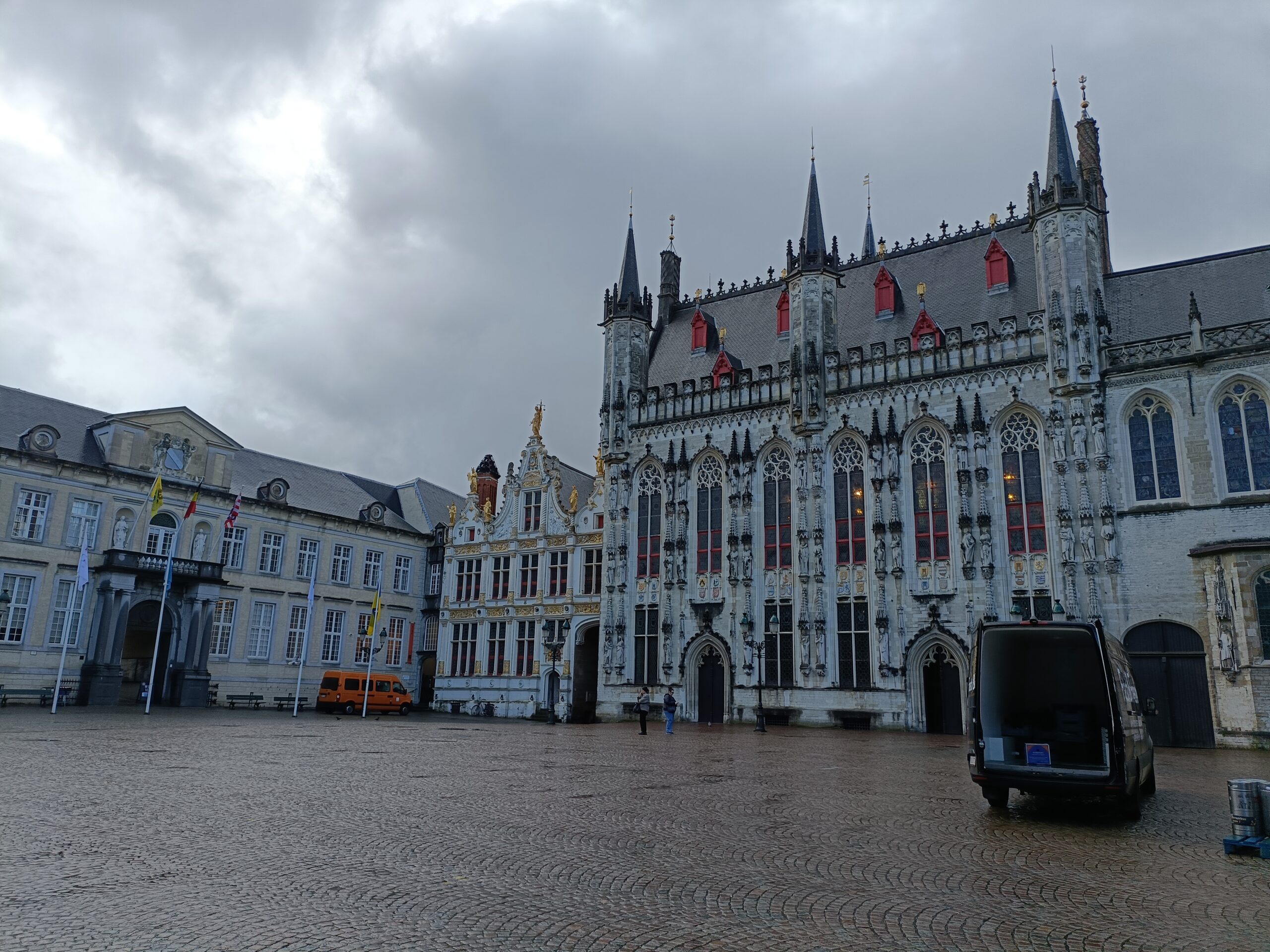Actualiteit
How to make your thesis Honours-worthy? Visit Bruges!
A few weeks ago, Bo Davids went to visit the archives in Bruges to glean more information and materials for their Honours Thesis. Her thesis concerns the multifaceted relationship between the Belgian city of Bruges and the Burgundian Valois duke Charles the Bold (r. 1419-1467). She explores the diplomatic and symbolic relationship between these actors through three lenses: mutual gift-giving, rituals and agency. Their archival research mostly covers Bruges’ city accounts, which hold a ton of economic and social information about the relationship with the duke. Below, you can read how she experienced her educational trip to the archives!
Like most Honours students, I found it difficult to imagine what would make a thesis ‘Honours-worthy.’ I already knew that I would add depth as my Honours-element, as my interest in late medieval history is greater than my desire to attach my thesis to another discipline or to make it ‘socially relevant.’
It took a few weeks to come up with, in my opinion, a perfect solution: a way to fulfil the wishes of the Humanities Honours Programme, to enrich my own thesis and to make the process even more of a learning

The archive from the outside
experience. I decided to do some field work, and conduct some palaeography, The backdrop of my thesis is fifteenth-century Bruges, and I like all history students, I have to work with primary sources. Whereas most of us (me included), often choose to forego the complicated process of manually handling age-old documents and simply use digitalised sources, this time around I decided it would be a great opportunity to actually visit an archive.
And so, I did. I booked a train ride to the Bruges City Archive, and a night at a hotel (the costs were generously reimbursed by the programme), and off I went. Before arriving, I had already

The archive where I spent most of my time
compiled a list of sources that had not been digitized, and that I had to see in person if I were to see them at all. Upon my arrival, I was greeted by the congenial staff of the archive, who were very interested and helpful. Instead of placing me in the regular reading room, with them bringing the documents to me, I was led into the archive itself, and was allowed to pick out my sources personally.
Beside the obviously thrilling experience, and the great opportunity to learn, this was also a very fruitful trip for my thesis. I managed to photograph and copy documents that I could not have had access to, had I not physically visited the archive. I believe that this experience is what the HHP-programme is and should be all about: giving students the chance to

A letter from Philip the Good to the city of Bruges
develop new research skills and expand even their undergraduate research into something more than is possible with just their own resources.
I am very grateful for this experience, and hope that other students may be inspired by this account to attempt similarly creative and fruitful ways to make their theses ‘honours-worthy’.

